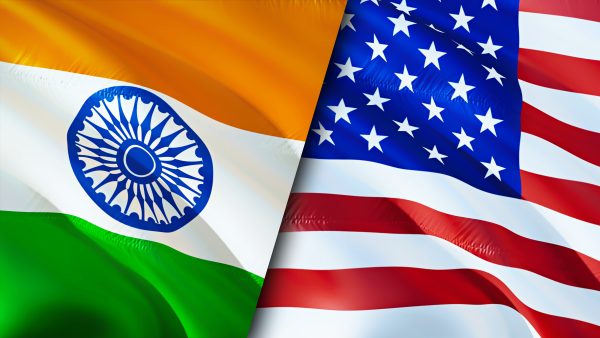“Influence of the United States over India”, how true is this phrase? A nation teeming with diversity and cultural richness has found itself deeply influenced by the United States in recent years. This influence extends far beyond just popular culture and spans various aspects of society, economics, and politics. While some argue that this Americanization is a natural consequence of globalization, others view it as a concerning loss of cultural identity. In this article, we will dissect why India is so heavily influenced by America, exploring both the benefits and drawbacks of this phenomenon.
1. Economic Influence on India
One of the most apparent reasons for India’s fascination with America is the economic powerhouse that the United States represents. American multinational corporations, such as Apple, Amazon, and Google, have established a significant presence in the Indian market, creating a profound impact on the country’s economy. Indians eagerly embrace American brands, products, and technologies, considering them synonymous with quality and innovation.
The influx of American investment and business practices has transformed various sectors of the Indian economy, from e-commerce and IT services to entertainment and pharmaceuticals. This economic interdependence is a driving force behind India’s inclination towards American influence.
2. Cultural Impact
American popular culture has permeated the lives of many Indians through music, movies, television shows, and fashion. Hollywood films and American TV series have a massive following in India, leading to a cultural convergence between the two nations. Bollywood, India’s own film industry, has also incorporated elements from Hollywood, resulting in a hybrid cinematic experience that appeals to a global audience.
American fast-food chains like McDonald’s and KFC have become ubiquitous in Indian cities, altering eating habits and preferences. Furthermore, American music, from pop to hip-hop, dominates the Indian music scene, reflecting the country’s fascination with American culture.
3. Educational Opportunities
The United States boasts some of the world’s most prestigious educational institutions. Every year, a substantial number of Indian students flock to American universities in pursuit of quality education and global exposure. The appeal lies not only in the quality of education but also in the diverse cultural experiences and career opportunities that America offers.
The Indian government’s encouragement of studying abroad, along with the availability of scholarships and financial aid, has fueled this trend. As a result, India’s youth are heavily influenced by American academic systems and values.
4. Political Alignments
India’s evolving political landscape has also drawn it closer to the United States. Both countries share democratic values and concerns about regional stability and terrorism. The Indo-U.S. strategic partnership has gained momentum over the years, with collaborations in defense, technology, and geopolitics.
India’s growing alignment with the U.S. in the global arena has inevitably led to the adoption of certain American ideologies and diplomatic stances. Critics argue that this alignment may compromise India’s sovereignty, but proponents view it as a means to strengthen the nation’s global standing.
Drawbacks of American Influence
While India’s fascination with America brings numerous benefits, it also poses challenges. One major concern is the potential erosion of traditional values and cultural identity. The relentless promotion of American consumerism and individualism can overshadow the richness of India’s own cultural heritage.
Additionally, the economic disparity between the two countries can result in a skewed relationship, with India sometimes playing a subservient role. Dependency on American companies and investments can undermine self-reliance and hinder the growth of indigenous industries.
India’s undeniable influence by America is a complex phenomenon with both positive and negative aspects. The economic and cultural exchanges have enriched the lives of many Indians, fostering a spirit of globalization and innovation. However, it is crucial to strike a balance between embracing foreign influences and preserving one’s cultural identity and values.
India’s journey towards modernity and global integration need not come at the expense of its unique traditions and heritage. It is the responsibility of the government, institutions, and individuals to navigate this path wisely, ensuring that India retains its cultural vibrancy while benefiting from the positive aspects of American influence. In doing so, India can continue to flourish as a dynamic and diverse nation on the world stage.



